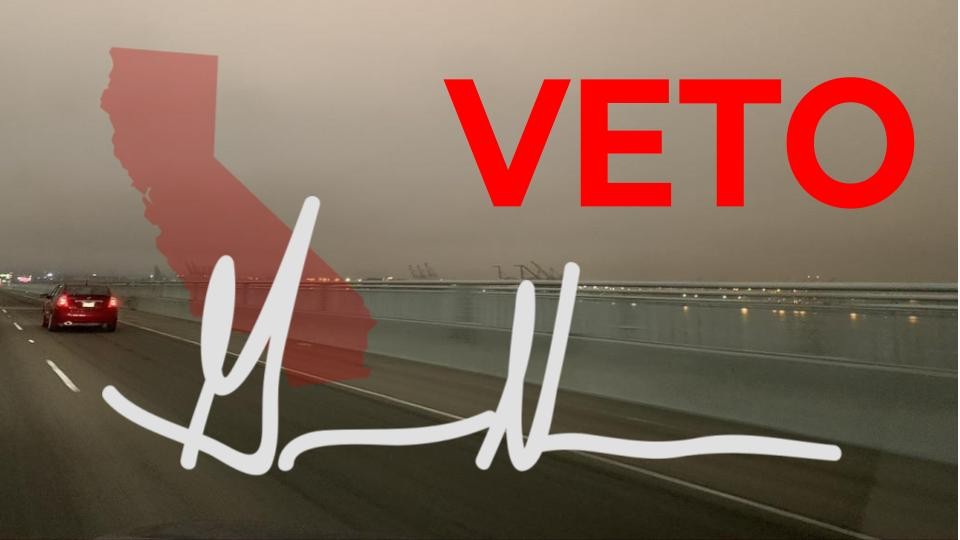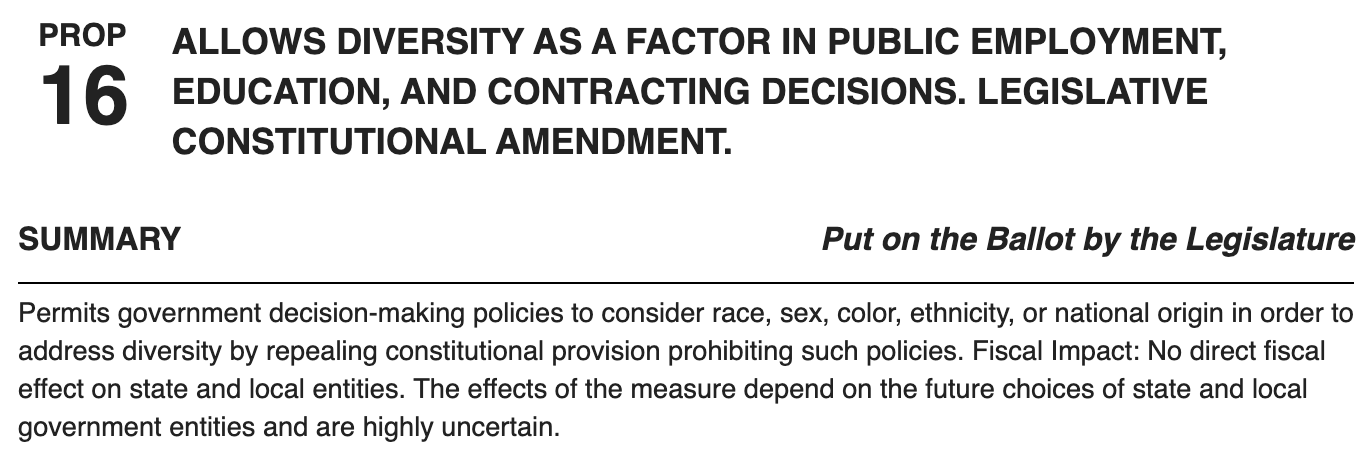Signatures and Vetoes 2020

Most 2020 Legislation Smothered by the Pandemic
The pandemic and the faltering economy were the most challenging issues this year. Lack of resources slammed the education budget and everything else, forcing the governor and legislature to deal with the fallout:
- Small business tax relief
- Expanded paid sick and family leave
- Access to workers’ compensation
- Eviction and foreclosure protections
- School closures
October is a good time to take stock of California's legislative year and how it affects schools and children. The legislature must pass bills by the end of August, and the governor must sign or veto them by the end of September. In an ordinary year about 1,000 bills make it through the process and become law.
$20 Billion Shortfall for Education
2020 has not been an ordinary year. More than 3,500 bills were pronounced "dead," meaning they were stopped in the course of the legislative process. The legislature — closed down for much of the session — advanced fewer than 500 bills.
The Education Coalition, a consortium of California's major education organizations, estimates that education funding will fall short by $20 billion next year. Several Hail Mary attempts to raise more money through the California legislature failed, including these:
- AB 1253 proposed to increase the income tax rate for top earners by 1 to 3.5 per cent.
- AB 2088 proposed to establish a first-in-the-nation wealth tax by setting a 0.4 percent tax rate on all net worth above $30 million.
California’s budget was “balanced'' this year on the hope that the federal government will come to the rescue.
So far it hasn't. Next year looks grim.Race and Equity
In a world swirling with social unrest, bills to address discrimination, racial inequity and funding for needy students met different results.
By passing ACA 5, the California legislature placed Prop. 16 on the November ballot. If passed by voters, it will overturn yet another measure, Prop. 209, a 1996 constitutional amendment that outlawed using diversity as a decisive factor in public employment, education and contracting.

Two bills on ethnic studies reached the Governor's desk. One is now law; the other was vetoed.
- AB 1460, now law, makes ethnic studies a graduation requirement for students at California State Universities. According to CSU, "the requirement advances a unique focus on the intersection and comparative study of race, ethnicity, class, gender, sexuality, religion, immigration status, ability and/or age. CSU courses on Africana literature, Native Californian perspectives, police reform, disparities in public health and the economics of racism, to name just a few, would meet the new requirement."
- AB 331, a bill to add ethnic studies as a requirement for high school graduation, was vetoed by the Governor, who called for changes in the model curriculum associated with the requirement. The administration is working with the President of the State Board of Education and the Superintendent of Public Instruction on a revised draft. Expect this bill to be back next year.
Governor Newsom also vetoed AB 1835, a bill meant to ensure that funding intended for needy students is actually spent on needy students. In this case, the veto might turn out to be technical in nature. "There is a simpler solution that allows us to address the objectives of AB 1835 much sooner and with more transparency," the Governor wrote in his veto statement. "I am directing the Department of Finance to propose language for your consideration as part of my budget in January."
New Laws Affecting Schools and Children
Pandemic
The legislature tried to limit hearings to bills related to the pandemic and emergency situations. For example, parents of K-12 children are now allowed to take time off without fear of discharge or discrimination for child care responsibilities when schools are closed for a state of emergency (SB 1383).
Schools may retroactively grant a high school diploma to seniors who meet academic requirements but who were unable to complete the statewide graduation requirements as a result of the COVID-19 crisis. (AB 1350)
Vaping
The Legislature and the Governor thumbed their noses at the tobacco industry by passing SB 793, which bans the sale of flavored tobacco. This is in response to another pandemic: vaping. Tobacco lobbyists are now trying to gather signatures for an initiative to overturn the law.
Suicide prevention
Recognizing that suicide is a public health crisis, the legislature passed AB 2112 to create an office of suicide prevention within the Department of Health and Human Services.
Lead
Children eligible for Medi-Cal got additional protections from lead poisoning under AB 2276.
Wait For It...
Policy changes often take years to make the journey from idea to law. Many education-related bills that stalled in the legislature this year may show up again next year. Here are some of them.
|
Topic |
Proposals |
Bills |
|---|---|---|
|
Kindergarten |
Require kindergarten before admission to first grade. |
|
|
Reading |
New reading competency assessment for teacher credential. |
|
|
State support to teach reading and literacy |
||
|
Grants to implement English Learner Roadmap |
||
|
Special Education |
Equalize special education funding |
|
|
Grant program for inclusive education |
||
|
Screening for dyslexia |
||
|
School Funding |
Increase base funding under LCFF |
|
|
Track/report supplemental/concentration grant funding under LCFF |
||
|
LCFF supplemental funding use enrollment, not attendance |
||
|
Supplemental LCFF grants for members of lowest performing subgroups |
||
|
Create California Tax Expenditure Review Board |
||
|
A bill to require more transparency and accountability for corporations with gross receipts of $5,000,000,000 or more (vetoed) |
||
|
Paid family leave |
Paid family leave due to COVID-19 |
|
|
School Safety |
Train staff on alternatives to physical restraint and seclusion of students, teach de-escalation techniques. |
|
|
Establish an emergency response team in the State Department of Education |
||
|
Require an emergency safety plan for students with IEP |
||
|
School Programs |
Increase Before and After School Program grants |
|
|
Homeless students |
Greater support for homeless students |
|
|
Teacher Competence |
Teacher credentialing: basic skills proficiency test exemptions. |
|
|
Additional options for how teacher credential candidates can demonstrate subject matter competence. |
||
|
Grants for students enrolled in an approved teacher credentialing program who commit to working in a high-need field. |
||
|
AP Exams |
Advanced Placement Test Fee Reimbursement Program. |
|
|
Child Poverty |
Child poverty tax credit. |
|
|
School Closure |
School districts cannot require staff to use sick, vacation, or other paid leave if the school is forced to close because of a mandatory evacuation order or certain emergencies |
|
|
Mental Health |
Public schools must have one mental health professional accessible on campus during school hours for every 600 pupils; Counties must provide Mental Health Services |
|
|
Develop state-wide model mental health referral protocols |
Do You Have An Idea for New Legislation?
We’d love to hear your suggestions. Please leave a comment!
Tags on this post
All Tags
A-G requirements Absences Accountability Accreditation Achievement gap Administrators After school Algebra API Arts Assessment At-risk students Attendance Beacon links Bilingual education Bonds Brain Brown Act Budgets Bullying Burbank Business Career Carol Dweck Categorical funds Catholic schools Certification CHAMP Change Character Education Chart Charter schools Civics Class size CMOs Collective bargaining College Common core Community schools Contest Continuous Improvement Cost of education Counselors Creativity Crossword CSBA CTA Dashboard Data Dialogue District boundaries Districts Diversity Drawing DREAM Act Dyslexia EACH Early childhood Economic growth EdPrezi EdSource EdTech Education foundations Effort Election English learners Equity ESSA Ethnic studies Ethnic studies Evaluation rubric Expanded Learning Facilities Fake News Federal Federal policy Funding Gifted Graduation rates Grit Health Help Wanted History Home schools Homeless students Homework Hours of opportunity Humanities Independence Day Indignation Infrastructure Initiatives International Jargon Khan Academy Kindergarten LCAP LCFF Leaderboard Leadership Learning Litigation Lobbyists Local control Local funding Local governance Lottery Magnet schools Map Math Media Mental Health Mindfulness Mindset Myth Myths NAEP National comparisons NCLB Nutrition Pandemic Parcel taxes Parent Engagement Parent Leader Guide Parents peanut butter Pedagogy Pensions personalized Philanthropy PISA Planning Policy Politics population Poverty Preschool Prezi Private schools Prize Project-based learning Prop 13 Prop 98 Property taxes PTA Purpose of education puzzle Quality Race Rating Schools Reading Recruiting teachers Reform Religious education Religious schools Research Retaining teachers Rigor School board School choice School Climate School Closures Science Serrano vs Priest Sex Ed Site Map Sleep Social-emotional learning Song Special ed Spending SPSA Standards Strike STRS Student motivation Student voice Success Suicide Summer Superintendent Suspensions Talent Taxes Teacher pay Teacher shortage Teachers Technology Technology in education Template Test scores Tests Time in school Time on task Trump Undocumented Unions Universal education Vaccination Values Vaping Video Volunteering Volunteers Vote Vouchers Winners Year in ReviewSharing is caring!
Password Reset
Search all lesson and blog content here.
Login with Email
We will send your Login Link to your email
address. Click on the link and you will be
logged into Ed100. No more passwords to
remember!














Questions & Comments
To comment or reply, please sign in .